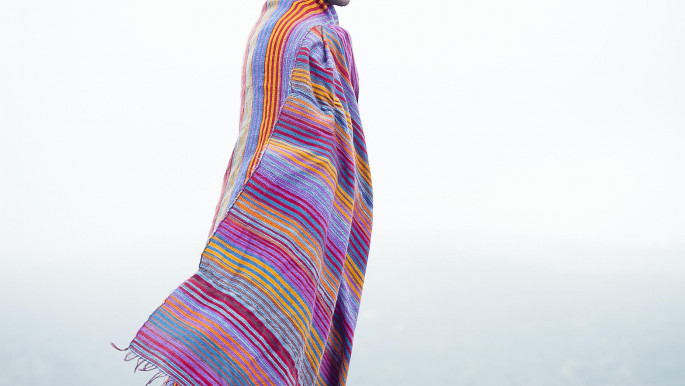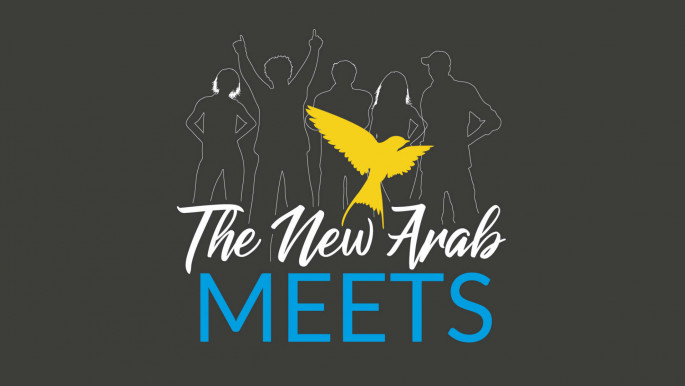'Music to feed souls and hearts': The land of N3rdistan
Speaking in English, French and Arabic, the band, which describes itself as the 'story of exiles,' comprises of Benjamin Cucchiara, Cyril Canerie, Widad Brocos and lead vocalist Walid Benselim.
Playing several genres, like indie, hip-hop, African rhythms and electro, lyrically much of their songs derive from old Arabic poets such as Mahmoud Darwich, Kahlil Gibran and Nizar Qabbani. But they also have original compositions in their own Darija dialect from Casablanca.
In fact, lead vocalist Walid took part in the homage to the late Mahmoud Darwich at Festival Arabesques by reciting several of his poems.
Thanks to their incendiary live performances, they've grown a large fan base in their native Morocco and much of North Africa, though nowadays they spend most of their time in France.
But given how much the landscape for contemporary music has changed dramatically, especially for indie acts, has the Arabic music scene changed in the last few years now that young Arabs have truly found their voice?
 |
|
| Lead vocalist Walid Benselim [N3rdistan] |
"I don't know if young Arabs have found their voice but for sure the Arab music scene is different than before the Arab Spring," Widad says.
"The expression is more free, the style is uninhibited, there is an emergence of a lot of more bands, and that's good considering the mainstream soup they have served us for decades."
But in France right now, a different type of cuisine has been served up in the past few years thanks to its large Arab population, one that's more Middle Eastern flavoured. So is it proving to be savoured by a lot of people?
"Yes," Widad affirms. "I think that what the Arab music scene is offering in styles of music is more rich and different. I think it is bigger for sure because a lot of bands are performing in Western countries since the Arab Spring. Is it a trend, a new hype or has it created its own place in the world music scene? I don't know."
Through N3rdistan's music there's a lot to discover, with every listen offering something new, whether that's the dynamics of the music itself or political activism being voiced.
"We believe that music explodes codes, barriers and moves the cursor from understanding the 'other'. These are the ones we make music for, and who for us, must feel the communion we want to share with them. When we make music, one of the first things that comes to mind is sharing the generosity of the moment."
| Listen to Occupy (Test ur Democracy) by N3rdistan |
But through activism, why is the language of music and arts so important to them?
"Art is a form of activism, as a band we are sensitive to humans rights, freedom of expression through our choice of poetry or personal lyrics we are trying to share those universal values. Language is not a barrier and culture will save us," Widad explains.
"Music is the first language, a universal language; it is a vibration. The whole universe sings, not with words, but with languages that were created to communicate and organise social life.
"It is also able to touch people in a biological sense, in a similar way that poetry can do. Think of it like sound waves entering your body directly via your ears. The music is there to feed souls and hearts."
With the release of their first full-length album in January 2019, featuring texts of great poets like the late Iraqi contemporary poet Nazik El-Malaika, considered by many as one of the most influential female poets of her time, and with plans to tour across Europe and Arab World, it seems there is no slowing down for N3rdistan anytime soon.
Yousif Nur is a freelance journalist, with a particular focus on music and culture in the Arab World. His journalism work has been featured in The Guardian, Telegraph, Dazed & Confused, Middle East Eye, Vice amongst many others.
Follow him on Twitter: @yousifnur






 Follow the Middle East's top stories in English at The New Arab on Google News
Follow the Middle East's top stories in English at The New Arab on Google News


